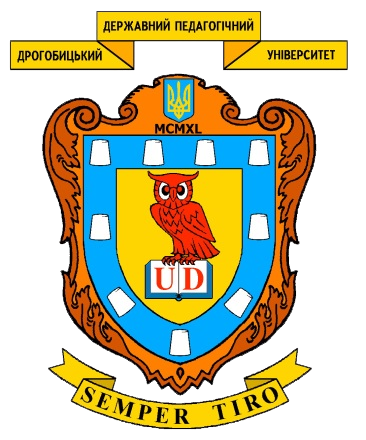THE ATTITUDE OF THE ROMAN AUTHORITIES TO CHRISTIANITY DURING THE REIGN OF THE SEVERAN DYNASTY
DOI:
https://doi.org/10.24919/2312-2595.40.126345Ключові слова:
християнство, переслідування, династія Северів, Септімій Север, Олександр СеверАнотація
Стаття присвячена ставленню римської влади до християнства за династії Северів. Визначено, що за Северів правовий статус християн не змінився. Християнство залишалося забороненою релігією. Переслідування християн у 197 році було обмеженим, і, ймовірно, було ініційоване натовпом. Каталізатором переслідувань у 203 році був едикт Септімія Севера, який забороняв навернення в іудаїзм та християнство, але був спрямований переважно проти християн. Головними причинами публікації цього едикту були, по-перше, різке збільшення кількості християн та активізація серед них прихильників Монтанізму; по-друге – зростання частки неєвреїв серед прозелітів; по-третє – ідентифікація християн як прихильників магії та віщування. Особливістю цієї хвилі переслідувань було те, що вони, мабуть, відбувалися на всій території імперії, а серед численних мучеників було багато неофітів. Ще однією відмітною особливістю переслідувань 203 було те, що їх ініціатива виходила від імператора. Едикт Септімія Севера згадував одночасно євреїв та християн, але це був останній акт римського уряду, який був спрямований проти євреїв та християн одночасно. Тривалість та інтенсивність переслідувань в різних провінціях були неоднаковою. Є багато свідчень про толерантність Олександра Севера до християн. Але правління Олександра Севера не принесло жодного покращення правового статусу християн. З другої половини II століття можна говорити про зростання серед християн настроїв до більш активної участі в офіційних установах римської держави, включаючи армію. Можна констатувати, що християни пішли на компроміс з римським урядом. Саме це сприяло тому, що у відносинах між християнами та владою у другому – третьому століттях існували довгі неконфліктні періоди.
Посилання
Abramzon, M.G. (1995). Monety kak sredstvo propagandy ofitcialnoi politiki Rimskoi imperii [Coins as a means of propaganda of the official policy of the Roman Empire]. Moscow: Izd-vo Magnitogorskogo doma pechati [in Russian].
Allar, P. (1898). Khristianstvo i Rimskaia imperiia ot Nerona do Feodosiia [Christianity and the Roman Empire from Nero to Theodosius]. Sankt-Peterburg: Sinoid. Tip [in Russian].
Amosova, E.V. (1999). Spontannye goneniia na khristian kak proiavlenie krizisa antichnogo massovogo soznaniia [Spontaneous persecution of Christians as a manifestation of the crisis of ancient public consciousness]. Antichnyi mir i arkheologiia – The Ancient World and Archeology, 10, 88–97 [in Russian].
Donini, A. (1989). U istokov khristianstva (ot zarozhdeniia do Iustiniana) [At the origin of Christianity (from the origin to Justinian)]. (I. Kravchenko, Trans.). Moscow: Politizdat [in Russian].
Kazakov, M.M. (2000). Problema khristianizatcii Rimskoi imperii [The problem of Christianization of the Roman Empire]. Issledovaniia po zarubezhnoi istorii – Studies in foreign history. Retrieved from http://ancientrome.ru/publik/article.htm?a=1405377993 [in Russian].
Krist, K. (1997). Istoriia vremen rimskikh imperatorov ot Avgusta do Konstantina [The history of the Roman emperors from Augustus to Constantine] (Vols. 1–2; Vol. 2). Rostov-na-Donu: Feniks [in Russian].
Lebedev, A.P. (1994). Epokha gonenii na khristian i utverzhdenie khristianstva v Greko-rimskom mire pri Konstantine Velikom [The era of persecution of Christians and the strengthening of Christianity in the Greco-Roman world under Constantine the Great]. Moscow: Izd-i otdel Spaso-Preobrazhenskogo Valaamskogo Stavropigialnogo monastyria [in Russian].
Tolkovaia Bibliia [Explanatory Bible]. (1912). (Vol. 10). Peterburg: prilozhenie k zhurnalu «Strannik» [in Russian].
Fedosik, V.A. (1991). Kiprian i antichnoe khristianstvo [Cyprian and Ancient Christianity]. Minsk: Universitetskoe [in Russian].
Aubé, B. (1881). Les chrétiens dans l’Empire Romain de la fin des Antonins au milieu du IIIe siècle [Christians in the Roman Empire from the end of the Antonines to the middle of the third century]. Paris: Didier et Cie [in French].
Avemarie, F., & Henten, J.W. van (2002). Martyrdom and noble death: selected texts from Graeco-Roman, Jewish and Christian antiquity. London: Routledge [in English].
Barnes, T.D. (1968). Legislation against the Christians. The Journal of Roman Studies (Vol. 58, pt. 1–2), (pp. 32–50) [in English].
Bryan, C. (2005). Render to Caesar: Jesus, the early church and the Roman superpower. Oxford: Oxford University Press [in English].
Canfield, L.H. (1913). The early persecutions of the Christians. New York: Columbia University [in English].
Clarke, G. (2005). Third-century Christianity. The Cambridge Ancient History (2nd ed.). (Vol. XII), (pp. 589–672). Cambridge: Cambridge University Press [in English].
Crake, J.E.A. (1965). Early Christians and Roman Law. Phoenix, 1, 19, 61–70 [in English].
Dudley, D. (1962). The civilization of Roma. New York: New American Library; London: New English Library [in English].
Frend, W.H.C. (2006). Persecutions: genesis and legacy. The Cambridge History of Christianity. Vol. 1: Origins to Constantine (pp. 503–523). Cambridge: Cambridge University Press [in English].
Gero, S. (1970). «Miles Gloriosus»: The Christian and military service according to Tertullian. Church History, 3, 39, 285–298 [in English].
Helgeland, J. (1974). Christians and the Roman Army A. D. 173 – 337. Church History, 2, 43, 149–163 [in English].
Janssen, L.F. (1979). «Superstitio» and the Persecutionof the Christians. Vigiliae Christianae, 2, 33, 131–159 [in English].
Kenrick, J. (1858). Roman sepulchral inscriptions: their relation to archaeology, language, and religion. London; York: John Russell Smith. [in English].
Keresztes, P. (1970). The Emperor Septimius Severus: a Precursor of Decius. Historia, 19, 5, 565–578 [in English].
Klauck, H.J. (2006). The Roman Empire. The Cambridge History of Christianity. Vol. 1: Origins to Constantine (pp. 69–83). Cambridge: Cambridge University Press [in English].
Łapicki, B. (1958). Etyczna kultura Starożytnego Rzymu a wczesne chrześcijaństwo [Ethical culture of Ancient Rome and early Christianity]. Łódź: Zakład Narodowy im. Ossolińskich we Wrocławiu [in Polish].
Moore, C.H. (1918). Pagan ideas of immortality during the Early Roman. Cambridge: Harvard University Press [in English].
Petrechko, O. (2016). A burial rite of the Romans in the context of the ancient society conception of the soul. Problemy humanitarnykh nauk: zbirnyk naukovykh prats DDPU im. Ivana Franka. Seriia «Istoriia» – Problems of humanities: collection of scholarly papers of Drohobych Ivan Franko State Pedagogical University. Series of «History», 38, 246–267 [in English].
Phipps, C.B. (1932). Persecution under Marcus Aurelius. An historical hypothesis. Hermathena, 47, 22, 167–201 [in English].
Platnauer, M. (1918). The life and reign of the Emperor Lucius Septimius Severus. London: Oxford University Press [in English].
Plescia, J. (1971). On the persecution of the Christians in the Roman Empire. Latomus, 1, 30, 120–132 [in English].
Ramsay, W.M. (1893). The Church in the Roman Empire. London: Hodder and Stoughton [in English].
Robinson, J.A. (1891). The Passion of S. Perpetua. Newly edited from the MSS. with an introduction and notes; together with an appendix containing the original Latin text of the Scillitan martyrdom. Cambridge: The University Press [in English].
Sherwin-White, A.N. (1952). The early persecutions and Roman law again. The Journal of Theological Studies (Vol. III, issue 2), (pp. 199–213) [in English].
Sherwin-White, A.N. (1966). The letters of Pliny: a historical and social commentary. Oxford: Clarendon Press [in English].
Smith, R.E. (1972). The army reforms of Septimius Severus. Historia, 21, 3, 481–500 [in English].
Suski, R. (2014). Jowisz, Jahwe i Jezus: religie w Historia Augusta [Jupiter, Yahweh and Jesus: religions in the History of Augustus]. Warszawa: Wydawnictwo Naukowe Sub Lupa [in Polish].
Van Den Eynde, S. (2005). «A Testimony to the Non-Believers, A Blessing to the Believers». The Passio Perpetuae and the Construction of a Christian Identity. In J. Leemans (Ed.), More than a memory: the discourse of martyrdom and the construction of Christian identity in the history of Christianity (pp. 23–44). Leuven: Peeters [in English].
Wypustek, A. (1977). Magic, Montanism, Perpetua, and the Severan Persecution. Vigiliae Christianae, 3, 51, 276–297 [in English].
##submission.downloads##
Опубліковано
Номер
Розділ
Ліцензія
Авторське право (c) 2018 Проблеми гуманітарних наук. Серія Історія

Ця робота ліцензується відповідно до Creative Commons Attribution-NonCommercial-ShareAlike 4.0 International License.








